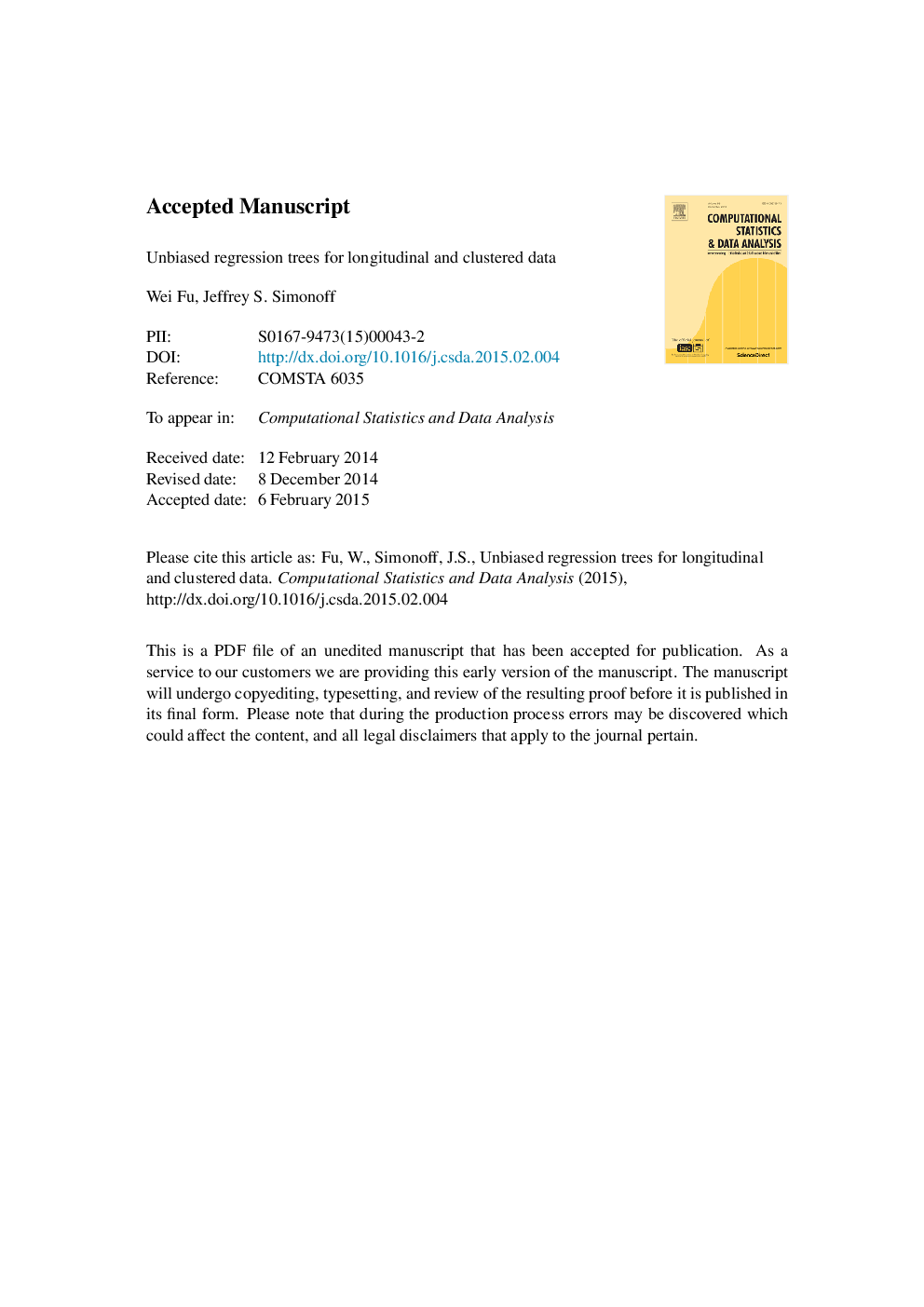| Article ID | Journal | Published Year | Pages | File Type |
|---|---|---|---|---|
| 6869596 | Computational Statistics & Data Analysis | 2015 | 38 Pages |
Abstract
A new version of the RE-EM regression tree method for longitudinal and clustered data is presented. The RE-EM tree is a methodology that combines the structure of mixed effects models for longitudinal and clustered data with the flexibility of tree-based estimation methods. The RE-EM tree is less sensitive to parametric assumptions and provides improved predictive power compared to linear models with random effects and regression trees without random effects. The previously-suggested methodology used the CART tree algorithm for tree building, and therefore that RE-EM regression tree method inherits the tendency of CART to split on variables with more possible split points at the expense of those with fewer split points. A revised version of the RE-EM regression tree corrects for this bias by using the conditional inference tree as the underlying tree algorithm instead of CART. Simulation studies show that the new version is indeed unbiased, and has several improvements over the original RE-EM regression tree in terms of prediction accuracy and the ability to recover the correct tree structure.
Related Topics
Physical Sciences and Engineering
Computer Science
Computational Theory and Mathematics
Authors
Wei Fu, Jeffrey S. Simonoff,
